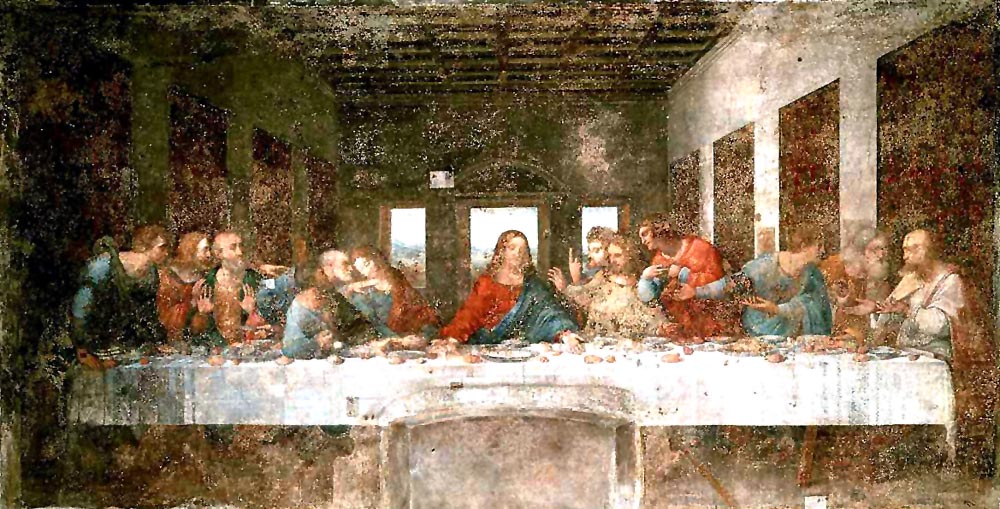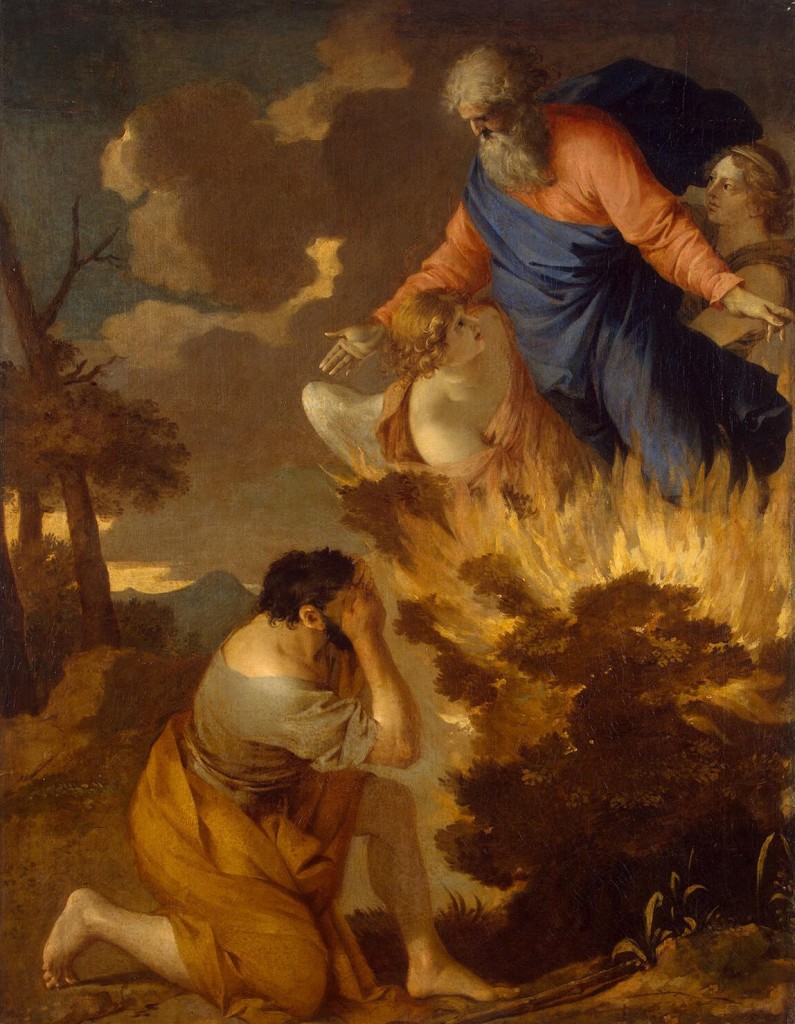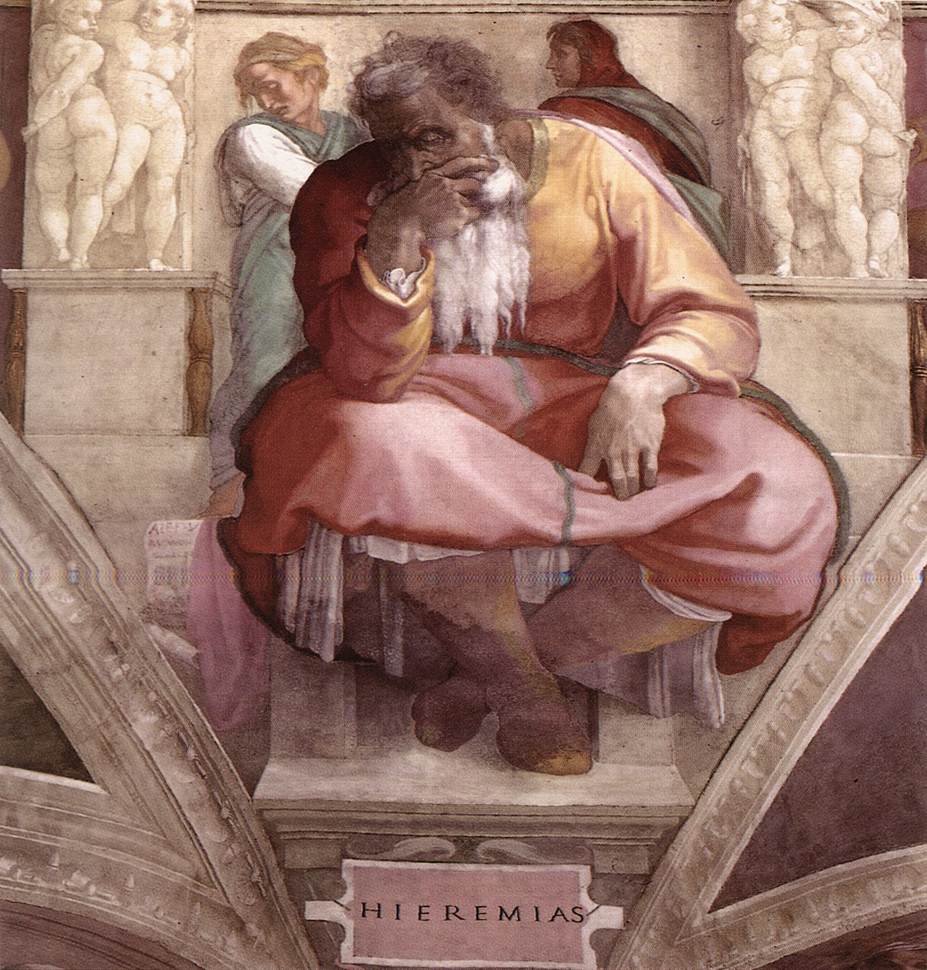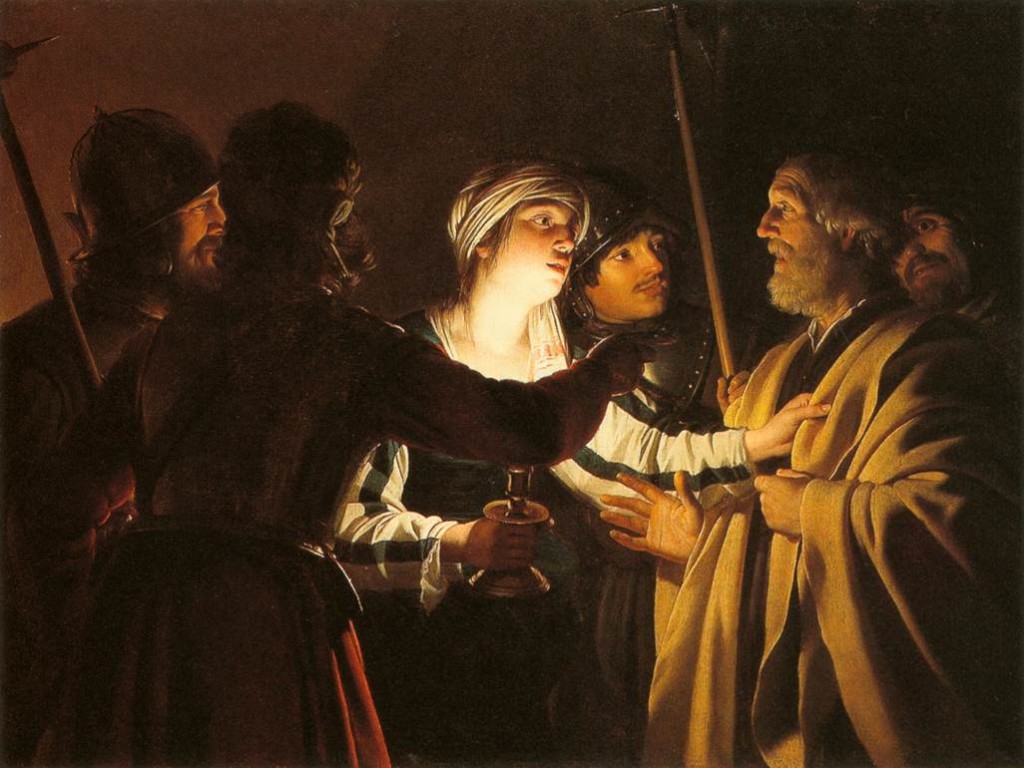Last updated on December 19, 2013
Note: This was originally a speech given at my high school. As valedictorian, they allowed me to give a speech, and as a Christian school, I had free reign to say what I wanted. What else could I talk about but theology, right? Considering I wrote this when I was eighteen, this seems spookily accurate eight years later.
Most of us have been attending Christian schools for our entire lives. Our parents have trained us up in the way we should go, our teachers have taught us, and our pastors have preached to us every Sunday. They have all tried to teach us the right way to live. We are fully equipped. How then shall we leave this place? We shall leave just as God sees us – as His masterpieces. Ephesians 2:10 tell us that
…we are God’s masterpiece. He has created us anew in Christ Jesus, so that we can do the good things He planned for us so long ago.
Most of us do not look upon ourselves as a Rembrandt, Michelangelo, or – dare I say – a Leonardo da Vinci. We feel like a piece of modern art among the masses. “Who painted this?” – just common and unknown.
Through all of our blemishes and imperfections, God looks deep within us to find that beautiful work which he has created and known from the beginning of time. We must be willing to let God unveil that masterpiece for His glory. We refuse, we argue, we run away – but God never gives up on His beautiful works of creation. We may not appear perfect at first, but when we allow God to shed light upon us, the Master’s handiwork can be seen, and we manifest as a collective Last Supper. His great works have burst forth from the most unlikely places.

Take Moses, for example: a man who spent his childhood years as Egyptian royalty. He was well educated. Things went well. That is, until he murdered an Egyptian slave driver. Word got around about the killing, and Moses ran away – far into the wilderness. Moses eventually found shelter with some nomads in the desert. Keep in mind, Moses could never return to the world he once knew. Would God choose a criminal such as Moses to do His work? Of course God can!
One day Moses, now a wandering shepherd, passed by a bush, which suddenly burst into flames and started talking. I’m sure you would stop whatever you were doing if you saw that. God, who had ignited the burning bush, charged Moses with a task: to save the Israelites from oppression and slavery in Egypt. Moses, however, wasn’t so fond of the idea; it appeared so overwhelming, and he would have to return to Egypt with blood on his hands.

As can be expected, Moses made excuses. In Exodus 4:10,
…Moses pleaded with the Lord ‘O Lord, I’m just not a good speaker. I have never been, and I’m not now, even after you have spoken to me. I’m clumsy with words.
Moses really though he had escaped from God. But, of course, with God there are no excuses and there is no escape.
‘Who made mouths?’, the Lord asked him. ‘Who made people so they can speak or not speak, hear or not hear, see or not see? Is it not I, the Lord? Now go, and do as I have told you. I will help you speak well, and I will tell you what to say.’
Moses could not even stutter out a “no”. In time, Moses marched back to Egypt in triumph, shattered the chains of his people, looted Egypt’s golden treasuries, opened the perilous Red Sea, and drowned hundreds of thousands of Egyptian soldiers under that same sea. God is waiting for the opportunity to do great things in your life. Don’t you believe that God would allow us to do what Moses did?
If I have not convinced you yet, take Jeremiah, for example. Jeremiah was a thirteen year-old studying in the priesthood in order to serve the temples of Jerusalem. God suddenly called him – without a burning bush, this time. God declared to Jeremiah,
‘Before I formed you in the womb I knew you, before you were born I set you apart. I appointed you as propet to the nations.’
Jeremiah is, understandably, a little overwhelmed; he’s about to become a prophet of God without any prior preparation other than the priesthood. It seems pretty dangerous, and Jeremiah replies,
‘Ah, Sovereign Lord, I do not know how to speak. I am only a child.’
Once again, excuses are used, and God rebuked Jeremiah.
‘Do not say, “I am only a child”. You must go to everyone I send you to and say whatever I command you. Do not be afraid of them, for I am with you and will rescue you’
Even a thirteen year-old can do great things for God; Jeremiah was God’s voice condemning Judah’s sin, proclaiming God’s coming wrath and Judah’s imminent destruction. Naturally, Jeremiah fell into bouts of depression, lamenting in Jeremiah 9:21,
Since my people are crushed, I am crushed; I mourn, and horror grips me.
As well, Jeremiah, perhaps, even contemplated suicide:
Cursed be the day in which I was born! Let the day not be blessed in which my mother bore me! (Jeremiah 20:14)

Although he was unable to save his people (considering that was the will of God), God still spared Jeremiah from exile when His wrath poured all over Judah. Jeremiah remained obedient to God through all circumstances: thrown into a cistern, bound in chains, and hated by his own people – yet he still served God. Don’t you believe we can have faith and be obedient as Jeremiah?
If these previous illustrations have not convinced you, take Peter for example – a fisherman and a disciple of Jesus – to seal the deal, so to speak. Peter followed Jesus in his ministry throughout Judea. He was the most fervent of disiple, so zealous a follower of Jesus that he leaped out of a fishing boat headstrong into surging waves at Jesus’ whim. Don’t be misled; this was not a pleasure walk on a picturesque day on the Sea of Galilee. Nonetheless, he always had worries and doubt in the back of his mind. When Jesus predicts His own death in Matthew 16:22, Peter interjects, saying
‘Never, Lord! This shall never happen to you!’
Why Peter would doubt his Master makes no sense. Jesus rebukes him:
‘Get behind me, Satan! You are a stumbling block to mel you do not have in mind the things of God but the things of men.’
Oh, how quickly our focus shifts! We, like Peter, always share the temptation to look at things from our own perspective, ignorant of God’s grand scheme. Peter even doubts that he will deny the Son of God three times. All of Jesus’ words come to pass, yet even Peter refused to believe all of them.

Sometimes, we do not want to know what God wants us to do; we conjure a perfect world for ourselves, when in reality our self-made world is imperfect. We sometimes doubt God because we cannot always “let go” and trust Him. But when we do, we can be like Peter: a great apostle, leader of the early Church, and harbinger of the Gospel, even though he was a worry-wart, a traitor, and a liar. If Peter could serve God, why can’t we?
Where do these examples leave us? They converge upon a singl truth: God looks for the willing, never the able. No man is able. We do not choose whether we are able, only whether we are willing. God forces greatness out of every unqualified person. When God used Moses, He established the nation of Israel through a stuttering shepherd. When God used Jeremiah, He exiled that nation through a suicidal depressive. When God used Peter, He founded His Church out of that nation through a headstrong backstabber.
These three men, and all of us, our just like paintings. Paintings cannot paint themselves. We cannot make ourselves. We require a Master painter. The painting merely exists in the studio, just as we are trapped in our world, hung on the easel of life. The Master painter, with different palettes and various brushes in hand, by continual modification and execution, works the paintings into masterpieces for His glory. And twhen the aritistic creation crosses over from mere speckles on the canvas to a masterful depiction of His boundless creativity, the Master takes that work of art and hangs it on the wall in His gallery. When our faith is complete, we cross over from painting to masterpiece, and the consummation of that faith occurs when we come, face to face, with the Master painter.
I urge you to leave today knowing you are a work in process, one of God’s masterpieces, just as Moses, Jeremiah, and Peter before you. You have a great purpose in the plans of God, and by trusting Him to lead you the right way, the masterpiece will be finished. And what a great work it will be, proudly displayed by God for all to see.
